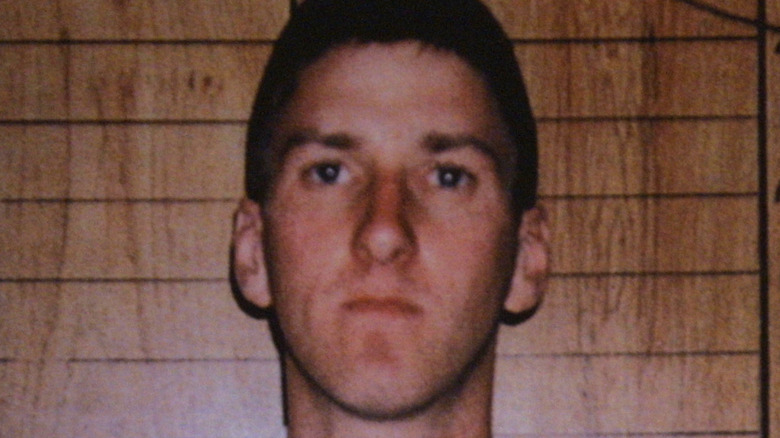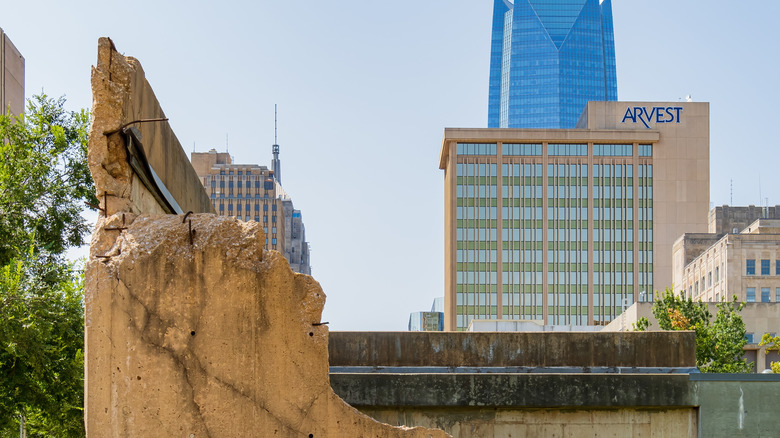Inside The Final Days Of The Oklahoma City Bomber
It was a peaceful morning on April 19, 1995, in Oklahoma City. People went to work in the Alfred P. Murrah Federal Building. Children of the workers frolicked in daycare. Then, domestic terrorist Timothy McVeigh came and ushered in mass death at 9:02 a.m. It was in the form of a car bomb that essentially tore the front off of the building, killing 168 people, with 19 of them being children, per the FBI.
Authorities initially thought it might have been the work of Middle Eastern terrorists, since it was relatively close to the 1993 World Trade Center bombing, but the car wreckage yielded a Vehicle Identification Number that led them to McVeigh, an American and also a Gulf War veteran. Ironically, he was already sitting in jail 80 miles away thanks to driving a car without a license plate. More and more evidence came, and he was charged and convicted. The sentence was handed down on June 2, 1997, per History. He was sentenced to death.
After three years on death row, McVeigh halted all appeals, and he was ultimately put to death in June 2001. In sharp contrast to the terror and chaos that he created when he bombed the federal building, McVeigh's final days were quite mundane.
Timothy McVeigh is gone, but the memory remains
Timothy McVeigh took no responsibility for what he did. He viewed those who had died as mere collateral in a war that he was fighting. The only regret was that he had used the bomb rather than a gun, which is what he was apparently better at using. He sent letters out to the newspaper that he read growing up, The Buffalo News, and he ascribed the fact that the people died in the blast as "the nature of the beast," per A&E.
He didn't do much else besides write those letters, which must have opened up a lot of wounds for those that lost loved ones. McVeigh had a last meal that consisted of two pints of mint chocolate chip ice cream, and then watched television off and on until his execution time.
When it came to his actual execution at 7 a.m., there were too many family members of those who he had killed to fit in the viewing room at the penitentiary in Terre Haute, Indiana, so they had to watch via closed-circuit TV. When he came into the chamber, he declined to say any last words. Instead, he had written out William Ernest Henley's poem, "Invictus," and had it handed to those who were there. There were no final words, no showing of remorse. Instead, he lay on the gurney, was injected with three different substances, and died four minutes after the first chemical was injected. The Oklahoma City Bomber did not close his eyes, and it must have been an eerie sight. It is unknown where his ashes were scattered.

